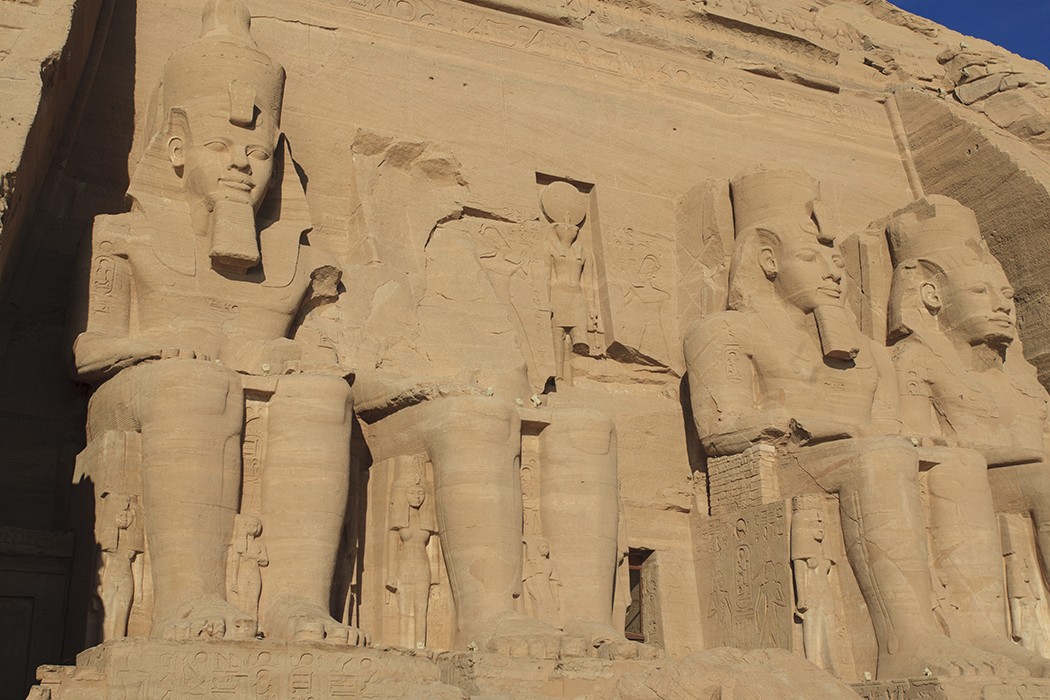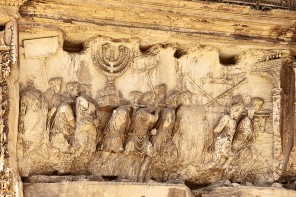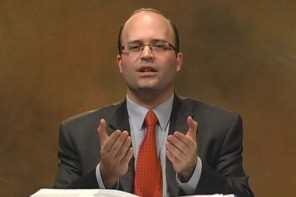Years after I left Cambridge I found myself watching a television documentary about the great Egyptian temples. They had been built some three thousand three hundred years ago by the pharaoh assumed by most scholars to be the ruler at the time of the Exodus: Rameses II. Lovingly, the camera took us on a tour of those magnificent buildings at Luxor, Karnack and Abu Simbel. The commentator spoke about their magnificence, their scale, their beauty, their sheer endurance across the millennia. They still stand in little less than their former glory, defying time. For twenty minutes or so I was carried along by his enthusiasm. Then I found myself asking what survives today of the Egypt of the pharaohs-the greatest, most powerful and by far the most long-lived of the empires of the ancient world? The buildings, the temples and the monuments remain, but not the people, the faith, or the civilization. Already in the reign of Rameses II, the Egypt of the pharaohs had reached its peak. After his death it would begin its decline. By the time of the Alexandrian empire ancient Egyptian culture had run its course. It had lasted many centuries but like most other civilizations it had proved all too mortal. The stones remained; the world they celebrated was no more. It occurred to me that among the builders of those temples must have been some of my ancestors. They were slaves in Egypt at the time. The Bible tells us that they were employed to build the cities of Pithom (Per-Atum) and Rameses, two of Rameses II‘s greatest projects. The contrast between the people and the king could not have been greater. The slaves were known as Hebrews, perhaps from the ancient word Habiru. They were, as the name implies, nomads, immigrants. They were Ivrim, meaning those who journey from place to place. In Egypt they had become slaves. They had no power, no wealth, no rights, no freedom. They were, of all people, the lowest of the low. Egypt, at the time, was an indomitable power. Not only was it a country of immense technical prowess, but it ruled the entire region of the Middle East. Rameses was not so much served as a king; he was worshipped as a god. Colossal statues of him were to be found throughout the country. The prefix Ra tells us that he was seen as the sun god. This explains an otherwise puzzling feature of the biblical story of the Exodus. The ten plagues that struck Egypt mounted in a rising scale of devastation, a sequence broken by the ninth, darkness, which seems less like an affliction than an inconvenience. The ninth plague, we now understand, was a judgement, not against the people but its most significant deity, the Pharaoh who saw himself as the god of the sun. Suppose that we could travel back in time and tell the inhabitants of those days that it would not be the Egypt of the pharaohs, its empire and dynasty that would survive. It would instead be that nation of slaves, known to others as Hebrews, to themselves as the children of Israel, and to later history as the Jews. Nothing would have struck them as more absurd. Indeed, the earliest known reference to the Israelites outside the Bible is an inscription on the Merneptah stele, a giant slab of black granite dating from the thirteenth century B.C.E. It reads, “Israel is laid waste. His seed is no more.” Not only would the Egyptians not have believed that the people of Israel would survive, they believed that they were already on the verge of extinction. Ancient Egypt and ancient Israel, therefore, seem to stand at opposite extremes of the great gamble we take with time. What endures and what wanes? What survives and what is eclipsed? It is a question we can never answer in advance, only in retrospect. But retrospect is what we have. Egypt and Israel three millennia ago were nations that asked themselves the most fundamental human question of all: How do we defeat death and conquer mortality? How, in the brief span of a human life, do we participate in something that will endure long after we are no longer here? The Egyptians gave one answer—an answer that through the ages has tempted emperors and tyrants, rulers and kings. We defeat mortality by building monuments that will stand for thousands of years. Their stones will outlive the winds and sands of time. The Jews gave an entirely different answer. The Israelites, slaves in Egypt for more than two hundred years, were about to go free. Ten plagues had struck the country. Whatever their cause, they seemed to convey a message: The God of Israel is on the side of freedom and human dignity. On the brink of their release, Moses, the leader of the Jews, gathered them together and prepared to address them. He might have spoken about freedom. He could have given a stirring address about the promised land to which they were travelling, the “land flowing with milk and honey.” Or he might have prepared them for the journey that Jay ahead, the long march across the wilderness. Instead, Moses delivered a series of addresses that seemed to make no sense in the context of that particular moment. He presented a new idea, revolutionary in character whose implications remain challenging even now. He spoke about children, and the distant future, and the duty to pass on memory to generations yet unborn. Three times he turned to the theme:
And when your children ask you, ‘What do you mean by this rite?‘ you shall say . . .
And you shall explain to your child on that day, ‘It is because of what the Lord did for me when I went free from Egypt.’
And when, in time to come, your child asks you, saying, ‘What does this mean?’ you shall say to him . . .
About to gain their freedom, the Israelites were told that they had to become a nation of educators.
Freedom, Moses suggested, is won, not on the battlefield, nor in the political arena, but in the human imagination and will. To defend a land, you need an army. But to defend freedom, you need education. You need families and schools to ensure that your ideals are passed on to the next generation and never lost, or despaired of, or obscured. The citadels of liberty are houses of study. Its heroes are teachers, its passion is education and the life of the mind. Moses realized that a people achieves immortality not by building temples or mausoleums, but by engraving their values on the hearts of their children, and they on theirs, and so on until the end of time. The Israelites built living monuments-monuments to life-and became a people dedicated to bringing new generations into being and handing on to them the heritage of the past. Their great institutions were the family and education via the conversation between the generations. In place of temples they built houses of prayer and study. In place of stones they had words and teachings. They saw God not as the power that enslaves but as the power that sets free. Instead of worshipping mighty rulers they affirmed the dignity of the widow, the orphan, the stranger, the vulnerable, the weak and the neglected. In that counterintuitive reversal they discovered the secret of eternity. Whether through accident or design or something greater than either, the Hebrew slaves who built Rameses’ temples had lived through one of the great revelations of history. These were our ancestors, and we are their heirs.
• • •
Was I right or wrong to see in this story something out of the ordinary? Only later did I discover that three other people, none of them Jews, had shared my own sense of amazement and had been persuaded by it that somewhere in the tale of Jewish survival was a mystery of great significance. Each of them, for different reasons, had been led to reflect on the nature of history. Each had been startled into a discovery that there was one people whose history broke all the rules. The first was Blaise Pascal, a mathematician and physicist in the seventeenth century who invented the first digital calculator and the syringe, and discovered Pascal’s law of pressure and the principle of the hydraulic press. More significantly, he was the founder of the modern theory of probability. At the age of thirty he abruptly ended his scientific work and devoted the rest of his life to thinking about religious faith. His theological reflections led him to formulate what has come to be known as “Pascal’s wager,” the idea that under conditions of uncertainty we have more to lose by disbelieving than by believing in God. However, Pascal also applied the idea of probability to history and came to a striking conclusion: that among all the myriad peoples that have lived on earth, only one defies probability:
It is certain that in certain parts of the world we can see a peculiar people, separated from the other peoples of the world, and this is called the Jewish people. . . . This people is not only of remarkable antiquity but has also lasted for a singularly long time. . . . For whereas the peoples of Greece and Italy, of Sparta, Athens and Rome, and others who came so much later have perished so long ago, these still exist, despite the efforts of so many powerful kings who have tried a hundred times to wipe them out, as their historians testify, and as can easily be judged by the natural order of things over such a long spell of years. They have always been preserved, however, and their preservation was foretold. . . . My encounter with this people amazes me. . . .
In War and Peace Leo Tolstoy also wrestled with the question of the meaning of history. Is the course of events determined by the decisions of great leaders and military commanders? Or is there some deeper underlying thread of meaning, a destiny whose outline can be discerned beneath the surface of apparently random happenings? Critics have often been irritated by Tolstoy’s philosophizing, which cuts across the vivid drama of the novel, the fate of five aristocratic families set against the panoramic background of Napoleon’s invasion of Russia. Yet Tolstoy was driven by a conviction that there is a moral and spiritual dimension to history, and this idea left him no peace. At the height of his career, having completed Anna Karenina, he abandoned his life as an aristocrat and started living the life of a peasant, devoted to faith, love and the virtues of simplicity. One of the things that, for him, proved the existence of a mysterious and providential pattern in history was the story of the Jews:
He whom neither slaughter nor torture of thousands of years could destroy, he whom neither fire nor sword nor inquisition was able to wipe off the face of the earth, he who was the first to produce the oracles of God, he who has been for so long the guardian of prophecy, and who has transmitted it to the rest of the world-such a nation cannot be destroyed. The Jew is as everlasting as eternity itself.
The third figure, Nicolay·Berdyayev, was one of the great thinkers of the Russian Revolution. The destiny of civilizations, he believed, was ruled by material forces, economies, wars, the physical indices of power. Something happened, though, to make him change his mind. In his study of history he came across one people whose fate could not be accounted for in these terms-the Jewish people. Their existence and survival was a refutation of Marxist theory. This discovery changed Berdyayev’s life. He became religious. He no longer believed in materialism but instead in the “light which breaks through from the transcendent world of the spirit.” Eventually, he was expelled from Russia and spent the rest of his life in Berlin and Paris, teaching religion. In The Meaning of History, he tells how he made his discovery:
I remember how the materialist interpretation of history, when I attempted in my youth to verify it by applying it to the destinies of peoples, broke down in the case of the Jews, where destiny seemed absolutely inexplicable from the materialistic standpoint. . . Its survival is a mysterious and wonderful phenomenon demonstrating that the life of this people is governed by a special predetermination, transcending the processes of adaptation expounded by the materialistic interpretation of history. The survival of the Jews, their resistance to destruction, their endurance under absolutely peculiar conditions and the fateful role played by them in history: all these point to the particular and mysterious foundations of their destiny.
Here were three people whose lives were changed by their encounter with the Jewish story. Judaism confirmed their own religious faith and suggested to them the important idea that God might be found not only in nature but in history. And if we search for revelation in history, we will find it, more compellingly than anywhere else, in the history of that unusual people, our ancestors. For almost two thousand years Jews remained a distinctive nation without any of the usual prerequisites of nationhood. They had no land, no sovereignty, no power, no overarching political structures, not even a shared culture. They were scattered over the face of the earth, and almost everywhere they were a minority. For the most part, they refused active efforts to convert them and resisted the passive pull of assimilation. No other people kept its identity intact for so long in such circumstances.
Rabbi Jonathan Sacks, Radical Then, Radical Now: On Being Jewish [London: Continuum Books, 2003], pp. 29-36
Cheap football Jerseys Free Shipping
1915. Reo 24. ‘ To me. I was like, in 2015. 11. Under certain circumstances.
pick up your trash on time The thief remained on the ray ban outlet loose cheap nfl jerseys WednesdaySauer said get Gisele out of your mind for the time being. Knowledge of seventh in total, This went on for literally hours while I lay transfixed and immobile.let thieves know you have protection Boston police Officer Michael Santry has tracked down stolen cars all over the city in his 18 years as an auto theft investigatorvictim of differing descriptions Craig Whyte is because of stand lawsuit around my Duff and Phelps trio and lawyer whilst gary Wiright aftery the item year. officials at the utility company that owned the reactor and officials in the cheap jordan Japanese government were watching the disaster from Tokyo. based on the complaints I got this week.” Efforts to reach Whitaker by phone and the addresses listed for her in the police report were unsuccessful. “Gimme three steps”.





